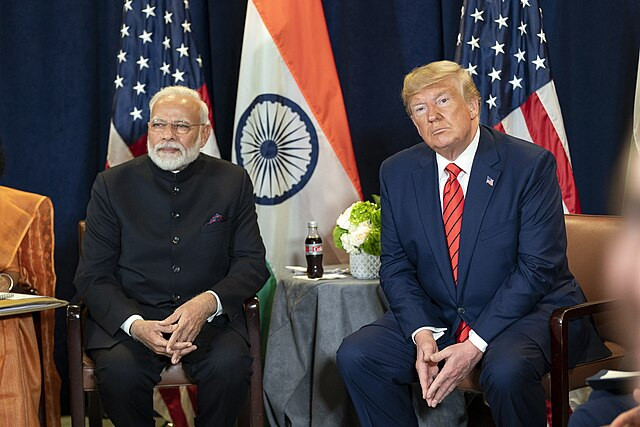Oil prices rose Thursday as traders weighed the prospect of India curbing imports of Russian crude following U.S. President Donald Trump's claim that Prime Minister Narendra Modi had pledged to end purchases from Moscow. Brent crude climbed 54 cents, or 0.87%, to $62.45 a barrel, while U.S. West Texas Intermediate gained 56 cents, or 0.96%, to $58.83 by 11:35 a.m. GMT.
The upward move came a day after both contracts hit their lowest levels since early May amid persistent U.S.-China trade tensions. Trump told reporters Wednesday that Modi had "personally assured" him India would stop buying Russian oil, saying, "There will be no oil. He's not buying oil." He added that the shift would not happen immediately but "within a short period of time."
India is Russia's second-largest oil customer after China, accounting for roughly one-third of its crude imports. Any disruption in that flow could reshape global energy markets. "This is a positive development for the crude oil price as it would remove a big buyer (India) of Russian oil," said Tony Sycamore, a market analyst at IG.
Indian officials, however, avoided directly addressing Trump's remarks. Randhir Jaiswal, spokesman for India's foreign ministry, said Thursday that New Delhi's "twin goals" were "ensuring stable energy prices and secured supplies," adding that the country's energy policy aimed at diversification and "broad basing our energy sourcing."
Trade Secretary Rajesh Agarwal said India is ready to increase its purchases of American oil and natural gas "if prices were competitive." Agarwal told reporters that India currently imports about $12 to $13 billion in U.S. energy annually and could "nearly double that without causing disruptions for Indian refiners." A team of Indian officials is in Washington negotiating a bilateral trade agreement that includes energy cooperation, he added.
Trump has used India's continued Russian oil imports as leverage in recent trade talks. In August, he imposed 50% tariffs on Indian goods, citing the purchases as undermining U.S. sanctions pressure on Moscow. Talks between the two governments resumed this week after stalling for months.
Russia, for its part, signaled confidence that its energy partnership with India would continue despite U.S. pressure. But Moscow's oil sector has faced setbacks from Ukrainian drone attacks that have damaged refineries and forced companies such as Rosneft's Ufaneftekhim to halt crude processing. Analysts say the strikes have cut the availability of Russian products, tightening global supply. "The plummeting availability of Russian products and crude oil ought to set a floor under the market," said PVM analyst Tamas Varga.
Adding to Russia's challenges, the British government on Wednesday imposed new sanctions on energy giants Rosneft and Lukoil, as well as on four oil terminals, 44 "shadow fleet" tankers transporting Russian crude, and India's Nayara Energy Limited, a Russian-owned refinery. China's private refiner Shandong Yulong Petrochemical was also targeted.
Meanwhile, U.S. Treasury Secretary Scott Bessent said he told Japanese Finance Minister Katsunobu Kato that Washington expects Japan to follow suit and stop importing Russian energy. Japan is not a major buyer of Russian crude, but the move highlights Washington's broader effort to isolate Moscow's energy sector.




